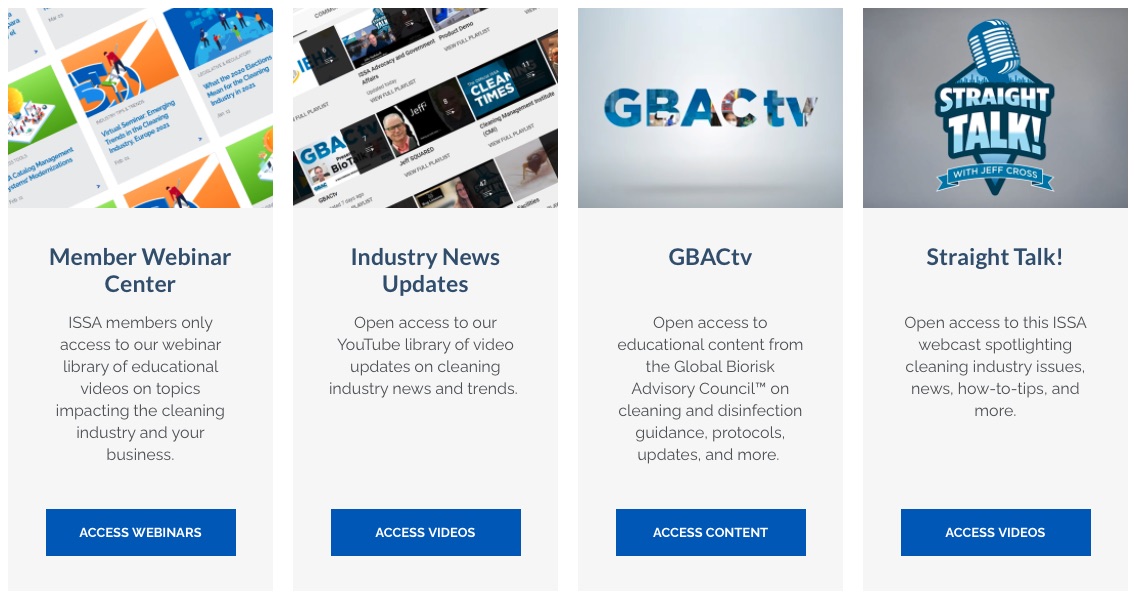Articles
Gathering Information During a Walkthrough: A Complete Guide
Categories: Cleaning Best Practices
By Sharon L. Cowan | May 3, 2018 << Back to Articles
There is nothing more crucial to the acquisition of new business than a successful walkthrough. So let’s start at the beginning: After you have introduced yourself and exchanged business cards, you will begin walking the building with the manager or building owner. During this time, you will be asking a lot of questions—but most importantly, you will be listening and paying attention to the concerns and needs of your prospect.
Listen & Learn
Listening is one of the most powerful attributes of a successful salesperson. If you don’t listen to what the prospect is telling you about the space and his requirements, you won’t be able to make good decisions on pricing.
Pay attention to areas of most concern to the prospect. If he tells you the restroom always smells musty, make a note. If he tells you the toilet dispenser is always empty, make a note. If he tells you the entryway is critical, make a note. Whatever is discussed during the walkthrough that is a concern, make a note and address it specifically in your proposal.
In order to prepare a fair proposal and come up with the correct price, you’ll need a wide variety of information. Keep the following guidelines in mind and make sure you address these issues with your prospect.
- How often is service requested? Frequency of service is a key issue. How many nights a week will the building be cleaned? The more frequent the cleaning, the easier to keep up with maintaining the property. Discourage one time a week accounts whenever you can.They require a full clean each visit and in the end usually don’t save money for the client. Encourage a minimum of two visits per week.
- Pay attention to quantity. How many restrooms are in the office? How many fixtures are in each (toilets, sinks, urinals, mirrors)? What type of floor covering is in the restrooms?
- How many people work in the space? What is the density of the office? Remember: the more people, the more upkeep necessary.
- Exactly what is being requested? What services are they looking for you to provide? Do they have written specifications? If so, make certain you understand them. If not, you will have to write them. Do they want floor care, window cleaning, and carpet cleaning? Discuss all of this during the walkthrough.
- Estimate the floor covering breakdown. What percentage is carpet, tile, and wood? Make a note of the percentage for each. These numbers can be approximate, but you need an idea because production rates are different for each.
- Where’s the janitor’s closet? Is there a place to bring supplies and leave on the property? Is it secure?
- Iron out the details. Are you to wash cups in the sink? What about coffee pots, computer screens and keyboards, personal items at desks, desks that are cluttered, inside of refrigerator, and the microwave? Have a clear understanding of expectations in these detailed areas.
- Who provides the consumable supplies? Paper towels, hand soap, trash liners, and toilet paper can drain profits if misused. Encourage the client to provide these products. Offer to order and deliver on an as-needed basis and invoice for the product. You will want to add additional revenue for warehousing and delivery to your invoice.
As you walk through cleanable space you will want to check for the following:
- Level of cleanliness. What is the current level of cleanliness in this space? Is this a reason the prospect is taking bids?
- Time commitment. How long would it take you to clean each room? Jot down your approximate times as you walk through the area.
- Office condition. Look for worn carpet or tile, damaged walls, and scuff marks on doors. The general condition of the office is an indicator of the prospect’s maintenance standards.
- Prospect’s standards. This shows what is important to the prospect. If the area is spotless and pristine, yet the prospect complains of dirt, you know that the standards are extremely high and you will have to budget plenty of time to complete the work.
You’ll also want to examine the circumstance behind the prospect’s need for a new contractor. Has the prospect had several cleaning companies in a short amount of time? Is the prospect happy with the current contractor, but looking to pay less (probably not a good situation for you)? Is the prospect happy with the current contractor, but the contractor is stopping service (you’ll want to consider the reasons for this, too)?
Gather as much information as you can during this time with the prospect. You might even ask if the prospect has a budget figure you need to meet. Some will tell you, others will not.
In addition to all of this information, you’ll also want to ask the prospect these questions:
- When are you looking to make a change? (If they say you can start tonight, you know that one day, they may treat you with the same disrespect and drop your company without notice. You would want to be careful here.)
- If you could change one thing about the current contractor, what would that be?
- In your mind, what would the ideal cleaning company be like?
- Is there a security alarm?
- Where are the Dumpsters for trash?
- Is there anyone else besides you involved in the decision making? If you like, I am available to speak to anyone else who is a decision maker.
- Are there any questions I can answer about my company that will help with the decision making?
Finally, professional ethics in our industry dictates that you would never speak badly about another cleaning company during a walkthrough. You will probably always find things that you would do better and rooms that could be cleaner; however, to speak poorly of another contractor to a prospect diminishes your professionalism. This is VERY important. I cannot stress enough that your professional behavior during the walkthrough will count more toward winning accounts than your price. You will gain respect and trust when you behave in a professional manner and set yourself apart from the competition.
Reprinted with permission from The Janitorial Store.
About the Author.
Sharon L. Cowan, CBSE, is President and CEO of the Cleaning Business Consulting Group, a coaching firm and consulting company dedicated to helping janitorial business owners. Sharon is also the author of “Post Construction Cleanup 101.” She can be reached at [email protected]; phone, 772-563-7320.





